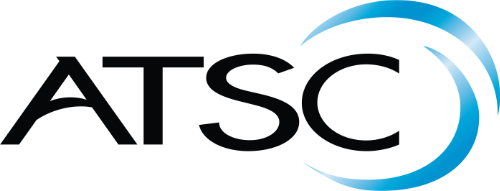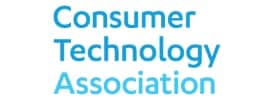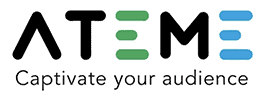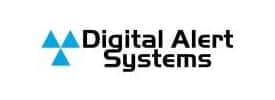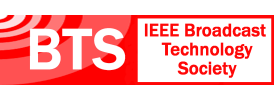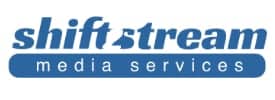- About
- Members
- Sponsors
- Subcommittees
- About Our Subcommittees
- Technology Group 3
- Implementation Team 1 – Advanced Emergency Information
- Implementation Team 2 – India
- Implementation Team 3 – ATSC 3.0 Conformance
- Implementation Team 4 – Brazil
- Implementation Team 5 – Tower Network
- Implementation Team 7 – Caribbean
- Implementation Team 8 – Automotive
- Planning Team 4 – Future Broadcast Ecosystem Technologies
- Planning Team 5 – Automotive Applications
- Planning Team 6 – Global Recognition of ATSC 3.0
- Planning Team 9 – Sustainability
- Technical Documents
- News
- Events
- Spotlight ATSC 3.0
- Contact Us
- Member Login
- Member Meetings
- Advanced Search
Search Site
Member Links
- About
- Members
- Sponsors
- Subcommittees
- About Our Subcommittees
- Technology Group 3
- Implementation Team 1 – Advanced Emergency Information
- Implementation Team 2 – India
- Implementation Team 3 – ATSC 3.0 Conformance
- Implementation Team 4 – Brazil
- Implementation Team 5 – Tower Network
- Implementation Team 7 – Caribbean
- Implementation Team 8 – Automotive
- Planning Team 4 – Future Broadcast Ecosystem Technologies
- Planning Team 5 – Automotive Applications
- Planning Team 6 – Global Recognition of ATSC 3.0
- Planning Team 9 – Sustainability
- Technical Documents
- News
- Events
- Spotlight ATSC 3.0
- Contact Us
- Member Login
- Member Meetings
- Advanced Search
SBE ATSC 3.0 Specialist Certification Exam Enters Beta Phase
Posted on March 5, 2020 in ATSC News
Since it was first announced last February, there has been a lot of progress on the ATSC 3.0 Specialist Certification program. The Society of Broadcast Engineers has been working with ATSC and the certification test development is now in the “beta” phase.
The coming Specialist Certification examination is designed to measure proficiency in certain knowledge areas, skills and abilities of the individual taking the exam. The goal is to create a fair, valid, and reliable certification examination.
The SBE certification program was created 45 years ago to recognize and raise the professional status of broadcast engineers by providing standards of professional competence. Through the years, the SBE’s certification program has become recognized in the industry as the primary method of verifying the attainment of educational standards. With the industry constantly changing, the SBE-certified engineer must keep up with those changes.
SBE Certification covers a range of experience levels and disciplines in broadcast and media engineering. As broadcast engineering diversified beyond legacy technology, the SBE Certification Program also diversified by adding certifications for computer networking and IT, and then a series of specific Specialist Certifications for television transmission, AM directional arrays, and digital radio. To hold SBE Specialist Certification, an individual must first hold one of the SBE core-four certifications: CBT, CBRE/CBTE, CSRE/CSTE or CPBE. Once the new ATSC 3.0 Specialist Certification is released, applicants will take a 50-question, multiple-choice exam and answer an essay question.
“The ATSC 3.0 suite of standards is developed to allow flexibility among different layers and also allow for the standard to be adapted as technology evolves. We’re in new territory with ATSC 3.0, so we want to help SBE develop a certification program that is both rigorous and accurate to qualify broadcast engineers,” says ATSC Technology Group Chairman Luke Fay. “ATSC is dedicated to educate and inform anyone who wants to study the technology.”
“The process of developing a certification exam follows a structured process to assess the competence of individuals for a specific set of skills. The SBE has a long successful record of developing certification exams for the Broadcast industry. This usually starts with a solid foundation of the material and good planning,” explains Ralph Hogan, a past president and fellow of SBE. “Typically the steps for developing certification examinations include conducting a job/task analysis, developing an examination blueprint, writing and reviewing test items, assembling and reviewing an initial exam structure database, conducting a pilot or beta test of that structure, revise as appropriate, and establish a passing score.”
“Developing a certification exam that will challenge the person being certified takes time and effort to develop the correct set of questions that is a balance of both theoretical and practical knowledge for the area being examined. Since ATSC 3.0 is a new technology and there is not much practical experience yet in the field, the challenge of getting it right is of upmost importance,” Hogan says.
SBE is currently working with industry professionals and manufacturers, including Luke Fay and other experts from the ATSC ranks, reviewing skills and knowledge areas to develop a preliminary examination database for the certification, which will assess the understanding of those factors by individuals sitting for the test. The process has reached “beta test” stage where an initial database of questions has been developed and pilot test-takers are providing feedback. SBE is working with these initial results to revised and hone the exam.
“ATSC greatly appreciates the efforts of SBE as it develops the ATSC 3.0 Specialist Certification,” said Madeleine Noland, ATSC President. “We are also proud of our members who have invested many hours to help develop an exam that accurately assesses an individual’s understanding of the key principles behind ATSC 3.0. All the effort and care behind the development of the ATSC 3.0 Specialist Certification ensures that those successfully obtaining this certification have truly demonstrated a meaningful understanding of the ATSC 3.0 system.”
For more information on the SBE exam process, please contact Ralph Hogan: rhogan@ieee.org
Posted in ATSC News
News Categories
News Archives
Subscribe
Subscribe to The Standard, our monthly newsletter. Learn More
Join ATSC
ATSC is a membership organization with both voting and observer categories. Voting members include corporations, nonprofit organizations, and government entities, and they participate actively in the work of ATSC. Observers are individuals or entities not eligible to be a voting member.
Subscribe to our Newsletter
Subscribe to The Standard, our monthly newsletter, to stay up-to-date with ATSC news and events around the world.
Site Links
Contact Us
Advanced Television Systems Committee, Inc.
1300 I Street NW, Suite 400E
Washington, DC 20005
Do you have questions about ATSC?
About ATSC
The Advanced Television Systems Committee, Inc., is an international, non-profit organization developing voluntary standards and recommended practices for digital terrestrial broadcasting. ATSC member organizations represent the broadcast, broadcast equipment, motion picture, consumer electronics, computer, cable, satellite, and semiconductor industries. ATSC also develops digital terrestrial broadcasting implementation strategies and supports educational activities on ATSC standards.
© 2024 ATSC
